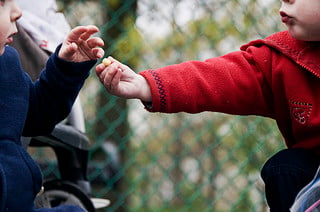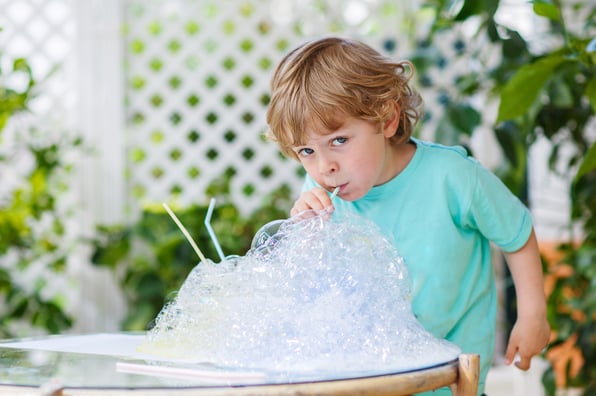 In a piece about working in a Toddler Care program, the Educarer blog tries to find the humorous side of toddler behavior by listing some “Toddler Property Laws.” Parents and caregivers of toddlers know that at this age, young children are very much into claiming ownership…even if the thing they want to claim is not theirs according to adult standards.
In a piece about working in a Toddler Care program, the Educarer blog tries to find the humorous side of toddler behavior by listing some “Toddler Property Laws.” Parents and caregivers of toddlers know that at this age, young children are very much into claiming ownership…even if the thing they want to claim is not theirs according to adult standards.
What does "Mine!" really mean?
The writer encourages parents who tire of hearing a child cry out, "Mine!" to consider their child's ownership claims in a different way. When a child reaches the "mine" phase, he or she has learned to separate from other people and to take a stand. While a parent should not ignore declarations of independence that include violence or rudeness, it just helps to remember that your child is learning how to interact with others. Because of a child's limited vocabulary, saying "mine" can express a number of ideas: that a child likes an object, that a child realizes he or she can express desire for things, that it is possible to express a preference in order to hold on to something.
Is sharing always the best solution?
Parenting and teaching toddlers requires a lot of patience and often as adults our first instinct is to tell a child that he or she must share and this blog calls that practice in to question. In some instances, a child is being selfish and sharing would be the “right” thing to do but forcing a child to do so may not win them over to the idea of sharing. Instead, adults can do their best to quickly evaluate the situation: is a child being mean or selfish or is he or she asserting his or her rights in the face of another child’s demand?
We’ll look at some ideas for handling these situations in a later post.
Photo Credit: Bengrey





